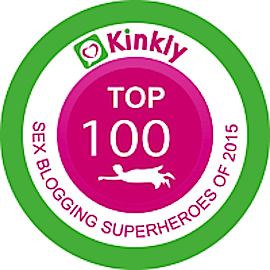“Create the highest, grandest vision for your life. Then let every step move you in that direction.” – Oprah Winfrey
For years as kid I wrote letters to Oprah—lots of letters. Daily letters. Most revealed brilliant ideas for show topics, all coincidentally featuring me. How about a show about a 9-year-old girl who moved to the suburbs, loves green and avoids foods with the word chunk in the title? I have no idea why Harpo folks didn’t leap at that one… Other times, I encouraged her to follow her dreams, because well, she obviously needed that. 😉

One of my letters, which missed the mail
Years later, when I began speaking publicly about the eating disorder I’d been diagnosed with while modeling in Paris, I sent her team a press kit. Finally, the pitch wasn’t centered on me; I sincerely wanted to share my story, with hopes of helping others. Not long after, one of her producers called to see if I’d like to appear with three other women in a special on eating disorders.
Then the Columbine High School shooting massacre happened. The eating disorder episode was postponed, understandably. As the possibility of appearing on Oprah’s show diminished, I was disappointed, but—to my surprise—not crushed, figuring it must not have been the right time. I wouldn’t recognize the accuracy of that thought until a year later, when I relapsed. Set again on needlessly shedding pounds, I grew hooked on dangerous diet pills, married someone I barely knew and made plans to move to Miami. There, my life would fall apart in order for me to be made whole again—fully this time.
A decade later, healthy and happy in Los Angeles, my admiration for Oprah remains. When I learned that she would be visiting California on her Live Your Best Life Tour, I knew I had to attend and, if possible, meet her. Sadly, the VIP tickets, which included in-person time, seemed to vanish immediately. Grateful for the chance to attend on a very good, if not the best, ticket, I surrendered the rest: what will be, will be.
Then my beloved bulldog, Zoe, who’d been fighting a rare form of cancer, began nearing her final days. I couldn’t seem to write at my usual velocity, but felt I owed it to Zoe and myself to dream big, doing short bursts of dream-work between rest and her care.

Savoring time with my precious Z
In one of those bursts, I thought, “I want to speak for crowds of awesome women.” Google led me to such an opportunity at the National Women’s Studies Association Conference in Puerto Rico, the largest feminist scholar conference in the world. When I saw check boxes on the application for PhDs, MAs and other academic accolades, the inner-naysayer Self Doubt echoed, “I’m not enough.” Then I spotted a category labeled independent scholar. I may as well try…
I quickly wrote and submitted a proposal and weeks later, learned it had been accepted. My doctorate in the School of Hard Knocks had been enough! I am enough.
Shortly after Zoe’s passing, I realized that the NWSA event and Oprah’s were scheduled for the same weekend. Heartbroken, I emailed The Life You Want coordinators, explaining my schedule conflict and what Oprah has long meant to me. Given the opportunity, I wrote, I would fly anywhere, even to sit in the furthest-away seat if I could transfer my non-transferable ticket to another weekend. I’d begun to lose hope when they called, asking if I’d like to attend the weekend in Houston as a VIP—which would include meeting Oprah.
At first, I’d blamed my foggy, grieving mind for the earlier schedule confusion. Now I don’t see it as erroneous at all. I probably wouldn’t have applied to speak, had I kept the dates straight. If Zoe hadn’t needed extra care, I would’ve been writing articles that day, rather than scoping out speaking gigs. If I hadn’t applied, I wouldn’t have had the chance to meet Oprah. See how things work out when we “do the work and then surrender?”
I hadn’t thought of it that way until Oprah described the approach as such in Houston this past weekend—an experience I consider one of the most beautiful gifts of my life.
After spending a day mingling with other attendees and entrepreneurs at O-Town, a pop-up, Oprah-themed village, I lined up with other VIPs at the Toyota Center entrance, retrieved my gracious gift bag then found my seat in the fourth row.
When Oprah appeared on stage in an elegant yellow gown, I cried. She may be as human as the rest of us, but to me and countless others, she represents so much more.

Oprah
The theme of the event was honoring our calling—our one true purpose in life. As I explained on the air yesterday, I’d sensed mine, to use my voice to help others, by age five, sketching an image of a yellow-haired girl clutching a microphone for a class project.
Later that year, the Oprah Winfrey Show premiered. Throughout my youth, Oprah taught me never to see my dreams as odd or unspeakable. No matter how unusual I felt (which was very and often), I could watch her show and feel somehow validated. Whether featuring makeovers, celebrity interviews, stories of triumph through tragedy or hard-hitting controversy, she brought compassion and light to people and stories in ways that made the world seem smaller, more loving and chock-full of possibilities.
And as she struggled with dieting and body dislike, I battled my own food and body image demons—which, in reality, had little to do with food or weight; I was afraid of living large, and desperate to disappear. Early in my recovery from anorexia, when even my dreams were controlled by the self-loathing-monster ED, her mere existence made my life more livable. For the single hour of the day her show aired, I felt less alone, able to pay attention to something other than my crippling self-talk and fears. During sleepless nights, I’d sit in her virtual chat rooms for obese people and overeaters; we spoke the same language.
Once I learned that I would be meeting Oprah in Houston, I planned to write her a letter, explaining all she’s meant to me—but letters weren’t allowed. How could I possibly, in a matter of minutes, tell her all I wished to say? When I shared my concern with my husband, he said, “Maybe you’re not supposed to be there to give her anything, but to receive.”
Can we say ah-ha moment?
So that’s precisely what I planned to do: receive—a practice I’ve been working to sharpen in other life areas. Baring my soul might have uplifted Oprah; who knows? It would also have taken more of her time and energy at the end of a long night in which she’d already shared hers for thousands and delayed others’ time with her. Spilling my heart would have been more about me than Oprah. Do I want her to know what she and her work have meant to me? Unquestionably. But the greatest gift I can give her, I realized, is making the most of my life, honoring the call.
At the VIP reception, Oprah told us that we were all there because we’d been called to be, and she was right. It felt as though we were all on a sort of pilgrimage, which varied in particulars, but bound us together. When my turn came to meet her, I shook her hand, thanked her for who she is and said, “You are so beautiful.” Thanking me, she offered a warm hug, then we turned to smile for the camera. I felt present, joyful and immeasurably grateful.

With Oprah, a dream come true
By attending the weekend, I felt I was doing my younger self good. The phenomenal speakers, attendees, meditations and soul-searching exercises only amplified that good. The experience illustrated to me that while I still have much work to do and never plan to stop dreaming, this life, the one I’m learning and growing through day by day, truly is the one I want.

Me, at age 5
To hear some of my favorite takeaways from The Life You Want tour and an excerpt from a story I wrote about my eating disorder recovery, listen to the latest Girl Boner Radio episode: Meeting Oprah & Overcoming ED.
Much love always,
August
























